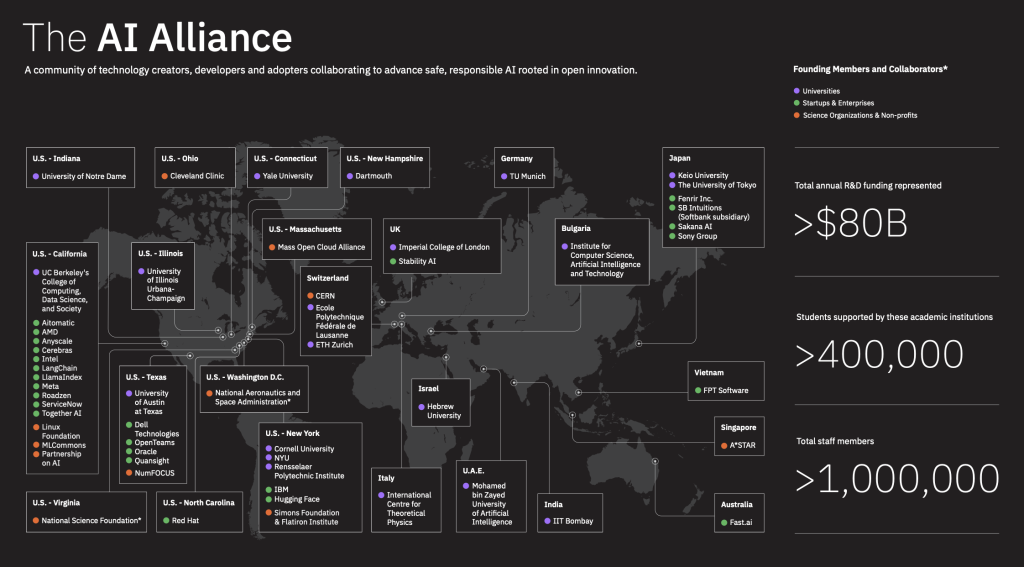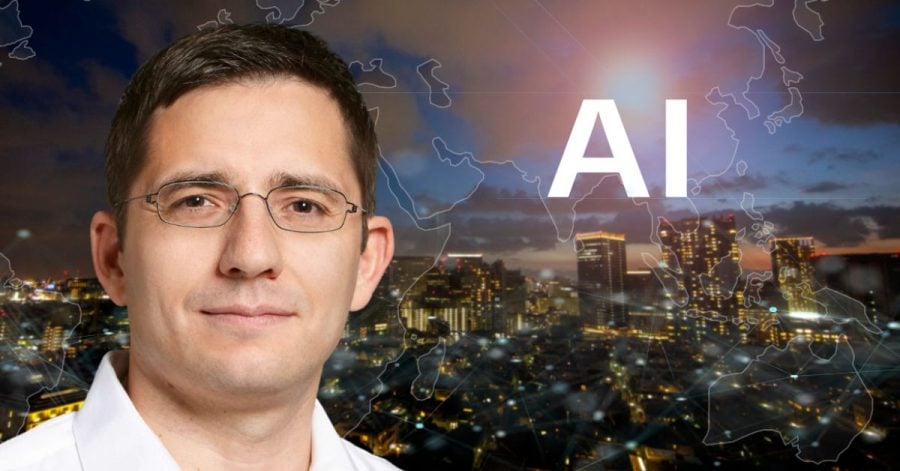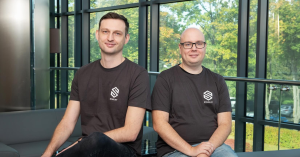Only have 1 minute? Here are 3 key takeaways from the piece:
• Bulgaria’s first AI institute INSAIT joins the global AI Alliance as a cornerstone research institute.
• Founding members include IBM, Meta, AMD, Anyscale, CERN, Cleveland Clinic, Cornell University, Dartmouth University, Dell Technologies, EPFL, ETH Zurich, Hugging Face, Imperial College London, INSAIT, and Intel among others.
• The goal of the global AI Alliance is to support open innovation and open science in AI.
The AI Alliance isa group of leading organizations across industry, startup, academia, research, and government coming together to support open innovation and open science in AI.
Recently, the substantial demand for computational and data resources in constructing foundation models, coupled with a scarcity of scientific and engineering talent, challenges the broad accessibility of AI innovation.
Thus, the imperative to showcase AI’s utility and establish trust, alongside prevalent apprehensions regarding AI risks, has contributed to the potential confinement of AI innovation within a limited circle of companies embracing a closed and proprietary vision for the industry, the group points out.
Hence, the AI Alliance is designed to create opportunities everywhere through a diverse range of institutions that can shape the evolution of AI in ways that better reflect the needs and the complexity of societies, as opposed to a vision that aims to relegate AI innovation and value creation to a small number of companies with a closed, proprietary vision for the AI industry.
“INSAIT is delighted to join the AI Alliance and help pave the way towards a more transparent, open, safe, and trustworthy AI,” INSAIT scientific director Prof. Martin Vechev said in a statement.
Furthermore, by bringing together leading developers, scientists, academic institutions, companies, and other innovators, the group looks to pool resources and knowledge to address safety concerns while providing a platform for sharing and developing solutions that fit the needs of researchers, developers, and adopters around the world.
How the AI Alliance operates
The AI Alliance will begin its work with the formation of member-driven working groups across all major topical areas listed above. It also plans to establish a governing board and technical oversight committee dedicated to advancing the above project areas, as well as establishing overall project standards and guidelines.

In addition to bringing together leading developers, scientists, academics, students, and business leaders in the field of artificial intelligence, the AI Alliance will also plan to partner with important existing initiatives from governments, non-profit and civil society organizations who are doing valuable and aligned work in the AI space.
According to Tom Mihaljevic, CEO and president of the Cleveland Clinic, the group will help different industry actors to come together and advance AI discoveries.
“We are pleased to become a founding member of the AI Alliance. As a leader in healthcare AI, we recognize that it has the potential to quickly accelerate the pace of medical research and enhance patient care. AI capabilities are now constantly growing and improving, and it is critical that organizations from diverse fields come together to help advance AI discoveries and technologies while also addressing concerns around security and safety.” Mihaljevic said.
When it comes to its operations and activities, the AI Alliance is taking a multifaceted approach with initiatives that encompass the creation of benchmarks, evaluation standards, and a catalog of verified safety tools. Additionally, the alliance aims to advance open foundation models, fostering diversity in modalities to address societal challenges.
Recognizing the importance of global AI skills, the alliance also plans to engage with the academic community, supporting research projects and skill-building efforts.
In addition, the alliance will develop educational content to inform public discourse and policy-making. Lastly, initiatives promoting open AI development and events showcasing responsible AI practices will be integral to the alliance’s mission.








